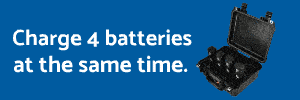Come on man... the sky isn't falling and that's a grossly broad brush you're trying to paint with. If you aren't doing something wrong then this law won't pertain to you. If you are doing something wrong why should your sUAS not be disabled? No different than the PIT MANEUVER to stop a fleeing suspect of (you insert the name of crime).
So you're comparing our hobby grade aircraft with almost zero redundancies (on many different systems BTW) to Certified Aircraft with multiple levels of redundancies and that have been rigorously tested for years?
Also you're comparing operators who have passed the most basic BOOK test and have demonstrated absolutely ZERO flying, judgement, safety skills to pilots that have hundreds of hours IN aircraft, experienced a very in-depth in person testing phase, and performed a Flight Demonstration to demonstrate technique, judgement, decision making skills and so much more?
Now toss into the fold hobby operators who often times don't have a clue what they are flying or it's capabilities/limitations until after there is a problem.
Let me just say.... you're comparing apples to kangaroos across the board.
So there’s the solution then! Piloting an aircraft is piloting an aircraft. No matter if it is for hobbyists, private pilots, stunt pilots, commercial, or even military. The danger to the public is the same. Something falling out of the sky and hurting someone. Before the hobbyist drones, all pilots had to get trained and certified to take to the skies. The bigger or more dangerous the aircraft or circumstances were, the more in-depth the training and certifications were. A pilot that owns a Cardinal Cessna and gets his very first VFR cannot even fly at night or into a cloud. For that, the pilot needs to get the next step up certification, their IFR.
I know this is going to rub a LOT of you the wrong way for even suggesting it, but why not have the FAA take a good look at drone pilots vrs private pilots and come up with something similar?









